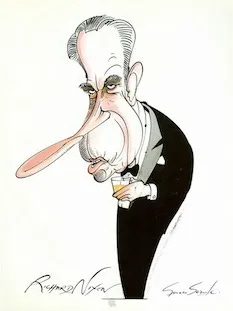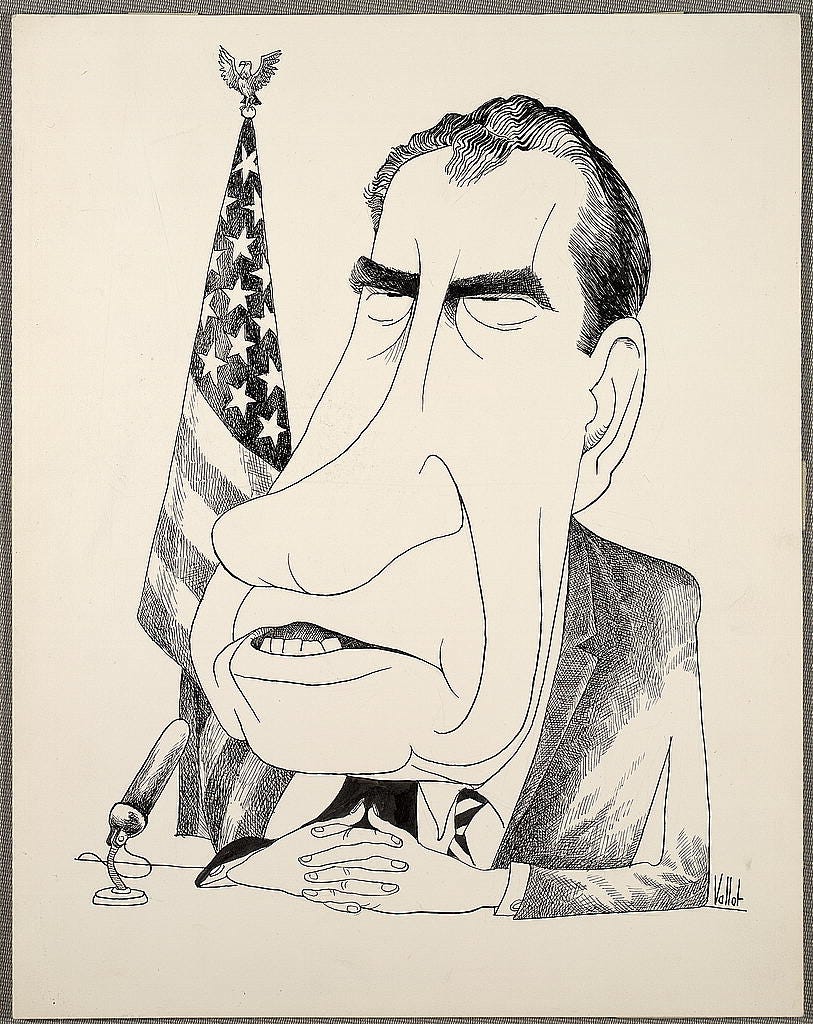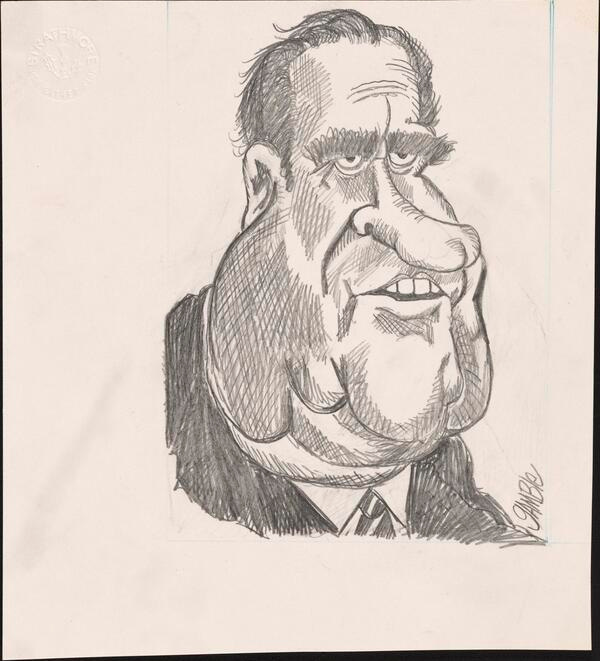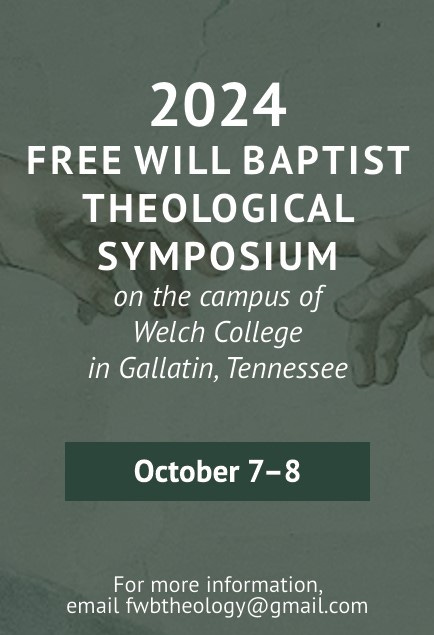A Fascinating Portrait
Recently I learned of a new biography of Richard Nixon authored by Daniel Silliman. Silliman is the news editor for Christianity Today, which was where I learned of this new religious biography.
As an avid reader of presidential biography, my interest was piqued. (It turns out that it’s the latest installment in Eerdmans’s acclaimed Library of Religious Biographies.) I’ve read many books about Nixon and the Nixon era in general. You can understand why I would be skeptical about learning much more about a person so familiar to both me and within the public consciousness. However, there's always more to learn with consequential presidents. There’s always a new dimension to explore.
Briefly, I’ll highlight a few details I’ve either been reminded of or encountered for the first time. Then I’ll make a few connections to contemporary political life and ministry.
One Sad Soul
Silliman’s title is as disturbing as it is bold: One Lost Soul: Richard Nixon’s Search for Salvation. The explicitly theological language is intentional. Silliman intends to show—using Protestant evangelical categories—how Nixon’s personal and political stories coalesce to create a tragic narrative: Nixon is a man who strived for recognition, greatness, and acceptance, for he never accepted that these could alone come from God.
Silliman’s words are piercing:
Nixon accepted labor as a theological idea and ideal. He believed in work and salvation by work. He could not accept grace, receive grace, or conceive of a world where he could rest in the knowledge that he was loved and in fact deserved to be loved. So he just kept striving. (10).
Such a strong claim early in his book made me wonder if Silliman was trying too hard to force both a psychological and spiritual profile onto a man who everyone already acknowledges was troubled by everything from childhood baggage (two brothers died in childhood) to political defeats (losing two major elections in 1960 and 1962) to his presidency ending in disgrace. However, Silliman brings the receipts. He expands on Nixon’s childhood, especially his conflicted relationship with his parents, his Quaker faith, his striving for acceptance from running mate Dwight Eisenhower, and his frequent pursuit of affirmation and acceptance by American elites, the mainstream press, and voters.
Silliman helpfully documents the uneven way in which Nixon’s childhood faith identity as a Quaker shaped his view of the world, and to a lesser extent, constrained his understanding of American power and warfare abroad. (Did you know that many members of the Quaker community in America sought to engage in something like church discipline, and have Nixon removed from membership in the church due to his approach to Vietnam? I didn’t!)
Most Americans with a cursory knowledge of Nixon’s life and legacy know that he enjoyed a very close relationship with Billy Graham, the twentieth century evangelist who Grant Wacker memorably called “America’s pastor.” Fewer of us realized how on-again off-again Nixon’s affiliation was with the Quakers as an adult.
One might be tempted to think that he only emphasized his Quaker roots when it served him politically. Though this is sometimes true, Nixon often steered clear of religious identity claims and appeals, even when it likely would have served him well politically, such as the 1960 presidential campaign against Roman Catholic Senator John F. Kennedy. While Nixon could be craven and opportunistic, these tendencies seem to develop gradually. They didn’t manifest from the outset of his political career.
Part of what propelled Nixon's deep resentment toward the press, elites, and political opponents was rooted in deep disappointment with civil rights leaders who turned on him in the 1960 campaign. This transpired even though he had been an early champion of civil rights in the 1950s, receiving significant support from within the movement. He later felt abandoned and misrepresented by so many, and deeply angered by how later politicians who enjoyed the support of the movement (Presidents Kennedy and Johnson) had knee-capped his efforts in 1956 to advance civil rights legislation. Yet they would be hailed as champions of civil rights merely a few years later!
By the time Nixon occupied the White House between 1969-1974 (based on Oval Office recordings) we discover a man who had become bitter, resentful, suspicious, cynical, craven, profane, and clad with scar tissue which had developed through personal and political setbacks.
Perhaps the greatest discovery for me is the worship services which Nixon held and planned in the White House each Sunday for much of the first few years of his presidency. The issue of church attendance by sitting presidents has been documented in various settings. Some went frequently, some seldom, and some never. (Often those who were the least theologically orthodox attended the most!) Nixon didn’t need to venture out to find a service. He held his own.
Nixon largely hand-selected the preachers, Scripture readers/readings, singers, songs, and most significantly, the guest list. What might have begun as below-the-radar and not attention-seeking became a means for the U.S. President to exercise political influence, bestow favors, and, as Silliman contends, protect himself from strong religious voices challenging him in his own personal sanctuary.
Though Nixon’s services eventually were curtailed, they became quite notable and coveted by the political class of his time.
A Lesson for Today?
There’s much more I’d like to say about Nixon and Silliman’s treatment of him. I certainly commend it to those interested in presidential biography, but also the intersection of spirituality and leadership. Although, it's a terribly sad volume.
One thread that is noticeable and durable throughout Silliman’s narrative is that of self-justification versus justification by faith. (He doesn’t use this language much, but it’s what he means.) Nixon never felt good enough, successful enough, and loved by so many figures in his life. While this began in childhood, it persisted throughout his life and career. On the one hand, if we can bracket out the way Nixon’s presidency ended, we can argue that he was one of the most accomplished presidents in the twentieth century. On the other hand, precisely because of how it ended—and how this becomes an interpretive key used by historians to explain away much of his earlier presidency—he is never remembered as being anything like “great.”
Can we say that how we begin something goes a long way to determining how it will end? I think we should. In some respects, Nixon’s political demise was inevitable. The moment he began taking names and making political hitlists, was the end not nigh?
The moment he started recording every Oval Office conversation, was his end assured?
The moment he decided in the mid-1960s that he wouldn’t rest until he was no longer seen as a loser, did he not sow to his flesh?
Nixon isn’t unique. Plenty of talented and ambitious men and women have allowed talents and ambitions to exceed their character. That always spells trouble. The higher you go, the further you fall.
We know that character matters. Even most unbelievers believe this, at least in theory. This rising versus falling dynamic hinges on an important question: upon which rock did you stand? Jesus, or your own labors? Nixon was always striving, but never attaining. And many Christian leaders eventually get sucked into this desperate cycle.
A second thread that lingers is the fact that Nixon was, in multiple respects, mistreated. While some of his obstacles were inherent to his chosen profession, and some were due to his own mistakes and deficiencies, he was often held to a double standard by journalists, political pundits, and colleagues. Even some of Eisenhower’s treatment of him was unbecoming of someone of his stature (and also politically unnecessary). Thick books have documented the lies about his so-called slush fund in the 1952 campaign, and actual fraud in the 1960 campaign in Illinois and Texas, likely costing him the election. Moreover, has any politician ever been caricatured (literally) so frequently?
When we reconstruct the kind of environment he inhabited, it becomes easier to rationalize some of his self-protective tactics and schemes. Nixon suddenly looks a lot more like, well, us, supposing we were operating under similar circumstances.
And yet, he made many, many terrible choices. He was petty, bitter, distrustful, insecure, and self-justifying. We cannot choose how the world will receive us, but we can choose how we will navigate the world. Nixon chose poorly, and it cost him dearly.
Silliman tries to stay close to real-world facts when it comes to drawing conclusions about Nixon’s own personal spirituality. Ultimately, we don’t know where he stood before God when he died 30 years ago, though his on-the-record beliefs about Jesus leave one deeply troubled. However, a close reading of his life reminds us that character matters and choices matter. Above all, God’s choice in providing justification by faith alone matters most.
Follow Up:
In Newsletter #120 I reflected on the nature of scholarly pursuits and the accountability that arises when we devote time and curiosity to a specific topic, question, or argument. Well, I am putting the final touches on a paper that will be presented in just a few weeks on the campus of Concordia Seminary in St. Louis for their annual theological symposium. The 2024 program deals with the theme of technology and the church. Here is an excerpt from my planned presentation:
Christians must reaffirm that our faith is a world-affirming faith.[1] That is to say, it affirms the goodness of material existence. If the doctrine of creation itself will not sufficiently persuade, then we need only add to it the doctrines of incarnation, resurrection, ascension, and future resurrection. These collectively provide the foundation and framework for seeing human embodiment as good, even as it makes us both finite and dependent. We are dependent first upon the Creator. Tony Reinke explains, “to be human is to be a human being, a creature ordered toward God himself. We find our bearings in orientation to him and to his will. Creaturely autonomy is a fantasy. God’s providence over the world, his church, and our lives is reality.”[2] In a world which prizes speed, efficiency, overworking, and omnipresence, this is a challenging claim to accept. It’s even more challenging to live in light of daily.
[1] We should recall that kosmos has at least three distinct meanings in Greek, only one of which refers to the fallen world/unredeemed human activity—the world we’re told not to love in 1 John 2.
[2] Reinke, God, Technology, and the Christian Life, 267.
Quotes of the Week:
It is the business of the Church to recognize that the secular vocation, as such, is sacred. Christian people, and particularly perhaps the Christian clergy, must get it firmly into their heads that when a man or woman is called to a particular job of secular work, that is as true a vocation as though he or she were called to specifically religious work. The Church must concern Herself not only with such questions as the just price and proper working conditions: She must concern Herself with seeing that work itself is such as a human being can perform without degradation – that no one is required by economic or any other considerations to devote himself to work that is contemptible, soul destroying, or harmful. It is not right for Her to acquiesce in the notion that a man’s life is divided into the time he spends on his work and the time he spends in serving God. He must be able to serve God in his work, and the work itself must be able to serve God in his work, and the work itself must be accepted and respected as the medium of divine creation.
In nothing has the Church so lost Her hold on reality as in Her failure to understand and respect the secular vocation. She has allowed work and religion to become separate departments, and is astonished to find that, as result, the secular work of the world is turned to purely selfish and destructive ends, and that the greater part of the world’s intelligent workers have become irreligious, or at least, uninterested in religion.
Dorothy Sayers, “Why Work?”
Of course, while [the church] may be different from the business world in our need to develop a strategy, we suffer the same consequences that the business world does when we fail to effectively articulate that strategy (or, worse yet, develop the wrong strategy). Without a strategy, a business ends up saying “yes” to too many unaligned opportunities. Its employees tend to chase inconsistent—or even conflicting—visions of success. Similarly, should you fail to adopt the Bible’s strategy for your church, you will subject your congregation and your leadership to the tyranny of pursuing the latest ministry fads, you will find within your church conflicting visions of what you should be, and you will neglect to follow hard after the opportunities that are in fact in line with the Bible’s strategy for your church.
Jamie Dunlop, “Strategy is Critical—but You Already Have One!”
Either the Church will be content to apply itself to God’s ordinary means and trust him for their extraordinary ends; or, the Church will pursue extraordinary means and content itself with ordinary ends.
Craig Troxel, Remarks given at a 2010 ministers’ conference reflecting on the ministry of William Still.
Books I’m Reading Currently/Still/Again:
Daniel Akin and Jonathan Akin, Exalting Jesus in Ecclesiastes.
Joel Biermann, Day 7: For Work, Rest, or Play.
Benjamin Labatut, When We Cease to Understand the World.
In Other News
Any day now the official program for the 2024 Free Will Baptist Theological Symposium will be made available. It’s going to be a great one! Make plans to attend this free event on the campus of Welch College in Gallatin, Tennessee, October 7-8.







